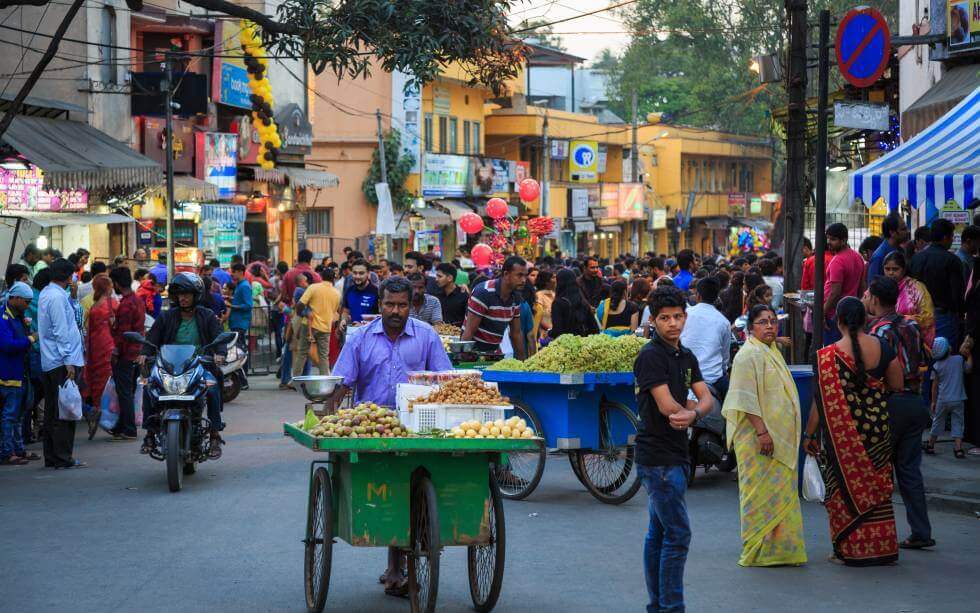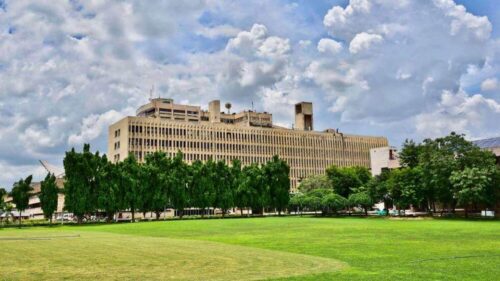Engaging citizens in the democratic process is crucial for promoting transparency, accountability and representation. This is as true for provinces and municipalities as it is for nations. In recent years, India adopted the highly acclaimed 2013 European model of the Sustainable Urban Mobility Plan, popularly referred to as the “SUMP,” for a more democratic system of effective assessment and monitoring at the regional and city levels.
The updated guidelines of the plan assign clear responsibilities, set measurable targets and define multiple performance indicators, thereby allowing India to embrace “city making” modeled on accountability and transparent civic engagement.
India’s transition to collaborative solution-building represents more inclusive governance, marking a departure from traditional top-down approaches. SUMP involves a wide range of policy stakeholders that allows for increasingly diverse and holistic solutions.
The importance of citizen involvement
Sherry Arnstein’s 1969 “ladder of citizen participation” model highlights the importance of meaningful engagement and power redistribution to counteract government manipulation. Her analysis urged a shift in focus towards empowering citizens to shape outcomes and influence policies in participatory democracy effects. She highlighted the need for policymakers to prioritize mechanisms that truly redistribute power.
In the Indian context, historical challenges in urban participation stem from outdated laws, often hearkening back to the colonial period, and limited state funding for development projects. This underscores the need for a strategic approach at the state level to address institutional, legislative, and political support for grassroots engagements.
The Participatory Research Authority of India’s report Institutionalising Online Citizen Consultations for Public Policymaking in India outlines three stages necessary to get the public involved in local governance:
1. Preliminary Engagement: Creating awareness through campaigns, advertisements, informal house visits, and formal consultations with specific groups.
2. Secondary Engagement: Consultations at the administrative level in wards, nodal centers in educational institutions, and stakeholder management at the local level for public sector scheme evaluation and coordination.
3. City Development Strategy Workshop (CDS): Involves updating the public on policy efforts and gathering active inputs from stakeholders and representatives.
This outreach could culminate in a citizen charter, a document which would formally lay out the commitments between the local government and its stakeholders. Clear and measurable commitments would promote transparency, accountability and regular review. Public awareness campaigns, feedback mechanisms, training for officials and independent oversight would be essential components to ensure the charter effectively strengthens the citizen—government interface.
Material progress, political stagnation
India’s economy and its cities are rapidly growing, but local democracy is not growing in order to keep pace with this development. The state is getting larger as oversight remains minimal.
The healthcare sector has witnessed a remarkable 137% increase in budget allocation, resulting in the implementation of new health policies and the introduction of voluntary health insurance schemes such as the popular National Health Insurance Initiative, also known as Aayushman Bharat. Additionally, there is a projected 2.5% increase in public health expenditure by 2025.
In education, the landscape has evolved with the growth of private aided and unaided educational institutions alongside government schools. Notably, advancements in data management systems have enabled better monitoring of student enrollment and dropout rates.
The power sector has achieved has now achieved 100% electrification rates in rural and semi-urban areas, underscoring the increasing viability of the industry. Year on year, there are significant additions to record capacities in electricity generation, indicative of the sector’s growth. The transmission system has also been bolstered, contributing to enhanced efficiency.
Yet despite all of this progress, institutional reform is not keeping up the pace. There remains a need for more organized approaches to address the complexities of citizen engagement. A lack of consensus on community development projects hinders progress for urban programs and public engagement. Meanwhile, an insufficient system of subsidies and incentives regulate participation.
Public engagement has declined, with less than 50% participation overall and less than 20% female involvement.
Inclusive development and community consultation through empowerment, awareness and collective training programs could go a long way to directing resources where they will really help. With the right balance of active governance and civic engagement, India’s urban sectors will flourish.
What the cities of India’s future might look like
To provide context, the McKinsey Global Institute Report of 2010 projected a four-fold increase in urban economies, reaching 147 million people and contributing to 70% of India’s GDP by 2030. This growth hinges on reducing the cost of delivering public services and unlocking potential savings. Local democratic oversight is necessary to ensure that this happens and that India’s urban population does not miss out on the benefits of this growth.
Globalization and industrialization have already kickstarted independence from socio-cultural restrictions in India. A growing urban class is beginning to assert itself as a political force. Yet it needs outlets to express itself in a constructive way. Streamlining citizen engagement processes can help the people who are driving India’s growth ask for the things that will enable them to keep doing so.
One key way to do this is expanding physical access to resources and job by improving urban transportation. Affordable and accessible transportation solutions can reduce inequality and enable broader participation in the economy. With greater economic opportunities come education, healthcare and social interactions.
Improved public transit, cycling lanes, walkable sidewalks, and carpooling initiatives boost options for marginalized communities and low-income groups. Sustainable transport infrastructure offers enhanced mobility options for various population segments, including marginalized communities and low-income groups.
Some promising steps have already been taken. Under the Sustainable Urban Management Accords (SUMA) of the Government of Karnataka in 2020, the southern state took steps towards introducing sustainable transport systems.
The key is to give the people access to their own cities — political access, economic access and physical access. All of these are mutually reinforcing. If we take charge of the moment and enable cities to guide and drive their own growth, we can create a more equitable and prosperous future for all Indians.
The views expressed in this article are the author’s own and do not necessarily reflect Fair Observer’s editorial policy.
Support Fair Observer
We rely on your support for our independence, diversity and quality.
For more than 10 years, Fair Observer has been free, fair and independent. No billionaire owns us, no advertisers control us. We are a reader-supported nonprofit. Unlike many other publications, we keep our content free for readers regardless of where they live or whether they can afford to pay. We have no paywalls and no ads.
In the post-truth era of fake news, echo chambers and filter bubbles, we publish a plurality of perspectives from around the world. Anyone can publish with us, but everyone goes through a rigorous editorial process. So, you get fact-checked, well-reasoned content instead of noise.
We publish 3,000+ voices from 90+ countries. We also conduct education and training programs
on subjects ranging from digital media and journalism to writing and critical thinking. This
doesn’t come cheap. Servers, editors, trainers and web developers cost
money.
Please consider supporting us on a regular basis as a recurring donor or a
sustaining member.
Will you support FO’s journalism?
We rely on your support for our independence, diversity and quality.









Comment